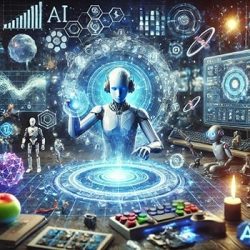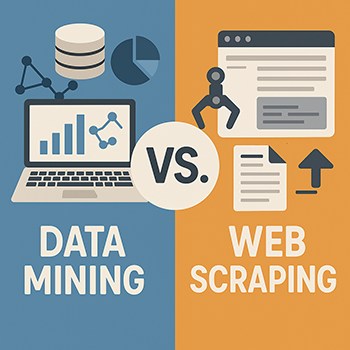Table of Contents
ToggleThe gaming industry has always been at the forefront of technological advancements, and artificial intelligence (AI) is no exception. AI has already made its mark by enhancing gameplay, creating realistic characters, and even designing game levels. But can AI go one step further and create entire games without any human involvement? Let’s explore this fascinating question.
What Does AI-Driven Game Development Look Like Today?
AI is already playing a significant role in game development, but its contributions are often collaborative rather than independent. Here’s how AI is shaping the industry today:
- Procedural Content Generation: AI can generate game levels, maps, and terrains in real-time. Games like Minecraft and No Man’s Sky use algorithms to create expansive worlds that feel alive and unique.
- Character Behavior: AI powers non-player characters (NPCs), giving them realistic behaviors that adapt to player actions. This makes games more immersive and challenging.
- Automated Testing: Game developers use AI to test games for bugs, performance issues, and balance. AI can simulate thousands of scenarios faster than human testers.
- Enhanced Graphics and Animation: AI tools like NVIDIA’s DLSS upscale graphics in real-time, improving visual quality without taxing hardware.
While these applications are impressive, they still rely on human oversight and creative direction. Fully autonomous AI game development remains a significant challenge.
The Potential for AI to Create Entire Games
To understand whether AI can create games independently, we need to consider its capabilities in key areas of game development:
Storytelling
Creating a compelling narrative requires understanding human emotions, conflict, and resolution. While AI like OpenAI’s GPT models can generate coherent stories, they often lack depth and originality. A human touch is still essential to craft stories that resonate emotionally.
Game Mechanics
Designing innovative game mechanics involves creativity and problem-solving. AI can replicate existing mechanics or combine them in new ways, but it struggles to introduce groundbreaking concepts without human inspiration.
Artistic Elements
AI-generated art and music are becoming increasingly sophisticated, but they often lack the intentionality and cultural context that human artists bring. Tools like MidJourney and AIVA can assist, but they’re not yet replacements for human creativity.
Player Experience
Understanding what players enjoy and creating experiences that keep them engaged is a nuanced task. While AI can analyze player behavior and make data-driven recommendations, it lacks the intuitive understanding of human preferences.
The Challenges of AI-Only Game Development
Creating a game without human input presents several obstacles:
- Lack of Creativity: AI excels at pattern recognition and optimization but struggles with abstract thinking and emotional creativity.
- Ethical Concerns: Autonomous AI game development raises questions about accountability, content appropriateness, and intellectual property.
- Technical Limitations: Despite advancements, AI still requires significant computational power and training data to function effectively.
- Player Expectations: Gamers expect originality, depth, and cultural relevance—qualities that AI alone may not yet deliver.
Collaborative Game Development: Humans and AI Working Together
The future of game development is likely to be a partnership between humans and AI. Here’s how collaboration can bring out the best of both worlds:
- Streamlining Workflows: AI can handle repetitive tasks like coding, testing, and asset generation, freeing developers to focus on creative aspects.
- Generating Ideas: AI can provide a starting point for levels, characters, or storylines that developers can refine and expand upon.
- Personalized Gaming: AI can analyze player data to create tailored gaming experiences, adjusting difficulty levels or introducing new content based on player preferences.
By working together, humans and AI can push the boundaries of what games can achieve.
The Future of AI in Game Creation
As AI technology evolves, its role in game development will continue to grow. Here are some exciting possibilities:
- Fully Dynamic Worlds: AI could create game worlds that evolve in real-time, responding to player actions in unprecedented ways.
- AI-Driven Storylines: Games could feature narratives that adapt dynamically, offering a unique story for every player.
- Accessible Game Development: AI tools could democratize game development, enabling individuals without technical skills to create their own games.
- Hyper-Realistic Simulations: Advanced AI could power simulations with unparalleled realism, blurring the line between gaming and reality.
Wrapping Up: Can AI Replace Humans in Game Development?
While AI has made remarkable strides in game development, it’s not ready to replace human creativity and intuition. The best games are born from a deep understanding of storytelling, culture, and player psychology—qualities that remain uniquely human. However, AI is an invaluable tool that can enhance and accelerate the game development process.
The future of gaming lies in the collaboration between humans and AI, where technology empowers creators to push boundaries and craft experiences that captivate players worldwide.





